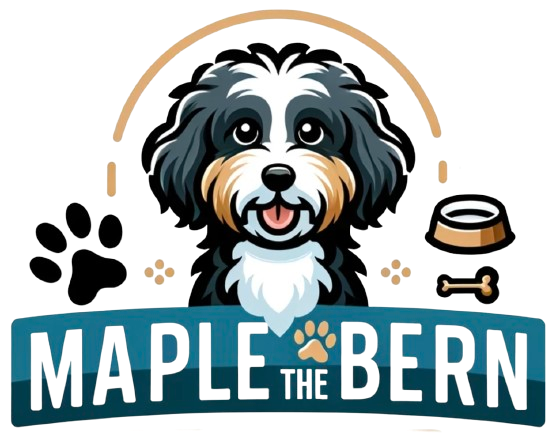
Cats tend to be more scrupulous with their food than some of their canine companions who love to scarf down anything they can find — and then regret it later. But you may have a curious kitty who decides to investigate the Thanksgiving preparations in the kitchen. So let’s go over the Thanksgiving foods that you should stop your inquisitive feline from sampling.
Some Cats Don’t Do Dairy
If you’re tempted to give your cat a bowl of milk or a slice of cheese as a treat for Thanksgiving (or at any other time), think twice. Some cats are lactose intolerant and don’t have the ability to produce lactase, the enzyme that breaks down lactose, the sugar in milk. Kittens are born with the ability to produce lactase so they can drink their mother’s milk, but most kittens lose this ability when they’re weaned.
If your cat is lactose intolerant and they drink some milk or eat dairy products, you’ll soon find out. If they have trouble digesting lactose, the sugar can ferment in their gut and lead to bloating, gas, vomiting or severe diarrhea. Not something you want at a Thanksgiving gathering!
High-Fat Foods Are High on the No-No List
While it may be tempting to throw a few fatty scraps your cat’s way, too much fat, especially at one time, can be bad for your kitty’s digestive system. When your cat eats something different from their normal cat food diet, it can change the bacteria in their intestines which can lead to gas and diarrhea.
So keep the turkey skin, fatty meat scraps, gravy and other high-fat or rich foods away from Kitty. If you really want to give them a Thanksgiving treat, feed them a little bit of cooked turkey without the skin instead. Low-sodium chicken broth can be a good alternative to gravy if you’re looking to give your cat the whole Thanksgiving feast experience.
Turkey Bones Go in the Trash, Not Your Cat
You should never give your cat cooked bones because they can splinter and puncture parts of their digestive tract or cause a blockage that requires surgery. You should also be careful about feeding raw bones: they may be contaminated with bacteria that can cause food poisoning. Make sure you dispose of carcasses, bones and anything used to wrap or tie meat (e.g., strings, bags, packaging) in a sealed trash bag, then in a container that your cat can’t get into.
Hide the Raw Bread Dough
If you’re making something scrumptious from scratch and it involves dough made with yeast, make sure you don’t let your cat near the raw dough. Ingesting raw yeast-based dough can cause an obstruction in your cat’s gastrointestinal (GI) tract and ethanol (alcohol) toxicosis. According to the Pet Poison Helpline®, the warm, oxygen-free environment of your cat’s GI tract causes the yeast to ferment and produce carbon dioxide and ethanol. The expanding dough can cause stomach distention, and the longer the yeast ferments, the more ethanol that is produced and absorbed into the blood. Ethanol toxicosis can be fatal if it’s not treated, so if you suspect your cat ate some raw bread dough, contact your veterinarian or an after-hours emergency clinic immediately.
Skip the Stuffing
There’s a reason that stuffing is sooo tasty — and unfortunately a lot of those yummy ingredients are on the no-no list for cats. Strong seasonings can be irritating to cats, and ingredients like garlic, onions and raisins are toxic. If cats eat too much garlic or onion in one sitting, or they eat several small doses over a short period of time, they can damage their red blood cells, leading to anemia. Similar to dogs, raisins are toxic to some cats and can cause kidney issues. If you’re looking for a safer alternative to stuffing, try some plain white or brown rice. Or make them a vegetable medley of plain and unseasoned cooked broccoli, pumpkin, corn (off the cob), carrots and green beans.
Cats Don’t Need Dessert
People love to finish off their Thanksgiving feast with something sweet like pumpkin or pecan pie. But sweet after savory isn’t something cats crave because, due to a “fake” dysfunctional gene, they can’t taste sweet flavors. If your cat does eat sweet things, it is the other flavors that they’re tasting, not the sweetness that we enjoy.
Keep in mind that the sugar and spices in pumpkin or pecan pie generally make these desserts a little too rich for the average cat, too. So offer them a spoonful of plain, canned pumpkin (not the spiced pie version) instead.
Given the well-known dangers of the artificial sweetener xylitol to dogs, you may be wondering whether xylitol is also toxic to cats. It is assumed that xylitol is not toxic to cats, but Dr. Beth Turner, writing for Preventative Vet, says we don’t know that for sure. There is a lack of reported cases of xylitol poisoning in cats, but there could be numerous reasons for this. Dr. Turner recommends being extra cautious and contacting your veterinarian if you suspect your cat did eat something with xylitol in it.
There’s a chance that your cat is going to turn their nose up at all of your Thanksgiving food choices, but it’s still good to know which foods can be dangerous for cats. Happy Thanksgiving!
RELATED POST: Five Reasons to Tell Your Cat “No People Food”
